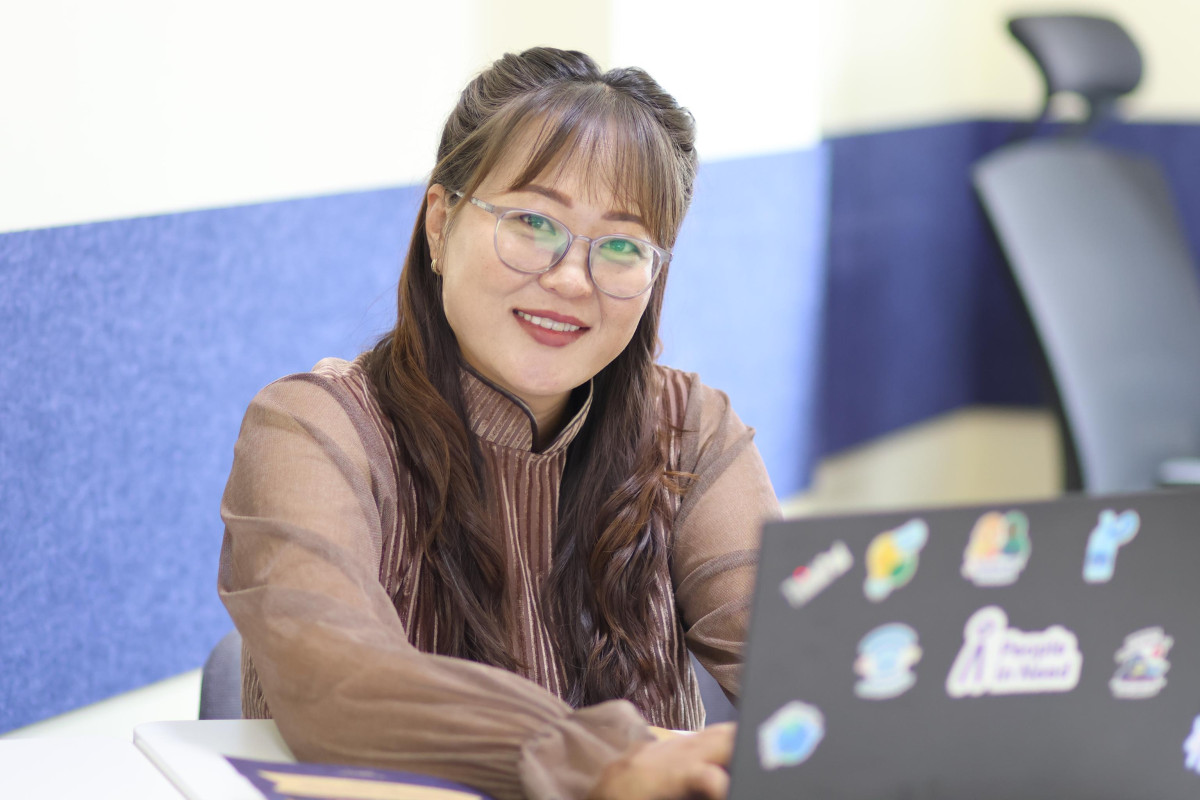Advancing Digital Skills in Mongolia: Four Community Voices
Published: Sep 29, 2025 Reading time: 3 minutes Share: Share an articleIn Umnugovi province, Mongolia, local civil society organisations are helping people take meaningful steps into the digital world. Herders, seniors, and female entrepreneurs, are gaining the confidence to use digital platforms safely and effectively. Through the Digital Inclusion through CSO Empowerment (DICE) project, practical training is changing daily habits. People are learning not only which tools exist but also how to use them to solve problems.

E. Uuganbyamba, Founder, Khundlel Bakharkhal
A psychologist with seven years of practice and a background in social work, E. Uuganbyamba established Khundlel Bakharkhal in 2023. After hearing about the DICE training from local partners, she immediately recognised their potential for community wellbeing.
She explains that many assume they already know how to use digital tools, but the training revealed they were only scratching the surface. Platforms such as E-Mongolia, Google Forms, and Canva can offer much more than most participants realised. Digital safety was another eye opener. People left understanding the importance of protecting personal data such as civil registration numbers and how small steps like two factor authentication can prevent risk.
Her project ran for three months across three soums. A herder who once relied on others now accesses government services independently via E-Mongolia. Another participant, who had kept bank passwords taped to the back of a phone, went home with a much safer way to store passwords.
Ts. Adyasuren, Executive Director, Togtvortoi Khugjild Tanii Temuulel
Togtvortoi Khugjild Tanii Temuulel delivered a Business Automation project for entrepreneurs in Dalanzadgad and Tsogttsetsii soums. Their focus was on practical adoption of tools that save time and reduce errors. The training covered artificial intelligence powered applications, government electronic procurement systems and integrated accounting platforms, all of which are widely used around the world.
D. Myadagsuren, Board Chair, Tunamal Selenge
Tunamal Selenge focused its efforts on seniors in Dalanzadgad. Over three months, the team selected four baghs and delivered nine rounds of training, reaching over two hundred people.
The project also developed clear and practical guides for trainers. These explained how to plan sessions, how many trainers to assign and what to prioritise. They will continue to serve as reference materials long after the project’s completion.
S.Batdelger, Head, Umnugovi Walking Association
The Walking Association began by hosting a large awareness session in partnership with local authorities, followed by a detailed class for thirty seniors.
Looking Ahead
The DICE project, funded by the European Union and implemented by People in Need Mongolia and Faro Foundation, is helping Umnugovi residents strengthen digital skills, confidence and safety. For herders, seniors and entrepreneurs alike, this training is already reshaping daily routines.
Local civil society groups are now better positioned to connect people with services and opportunities that were once out of reach. As Uuganbyamba reflects, the goal is simple. Help one person solve one problem today and repeat this across communities until digital inclusion becomes the norm.

